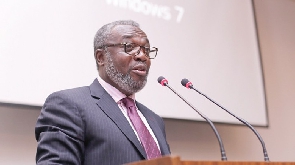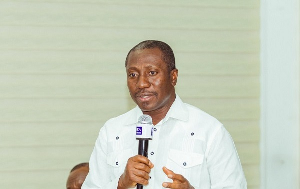Dr. Anthony Nsiah-Asare, the Presidential Adviser on Health, has attributed the recent surge in the cost of renal dialysis in Ghana, to foreign exchange fluctuations.
In an interview, Dr. Nsiah-Asare addressed the concerns of Ghanaians, especially dialysis patients, who expressed their distress over the dramatic price hike.
The controversy unfolded after the Renal Dialysis Unit at Korle-Bu Teaching Hospital announced a substantial increase in the cost of dialysis sessions, raising the price from GH¢380 to GHS¢765.42 per session on September 27.
The move was met with strong criticism from both patients and the Minority Caucus in Parliament, who labeled the increase as illegal and outrageous, demanding an immediate reversal.
In response, Dr. Nsiah-Asare explained that while import charges did play a role in the heightened costs, the principal factor driving the increase is the instability in the foreign exchange rates in recent months.
He emphasized that dialysis, in general, tends to be expensive, regardless of the location where it is administered, citing the prevalence of disposable materials used in the procedure. These disposable materials, often imported, have been significantly affected by currency fluctuations.
Dr. Nsiah-Asare also urged hospitals to take advantage of the Tax Exemption Regime to mitigate the impact of import duties on dialysis consumables.
“Dialysis is generally expensive irrespective of wherever you are coming from, and most of the things we use in dialysis are used once and disposed. Almost all the things we use in dialysis are imported into the country, and the problem is because of the foreign exchange regime and what has happened over the period of time is the foreign exchange,” he stated during the interview.
He further emphasized the need for a holistic approach to addressing renal health issues, including examining the causes of renal cases, the treatment methods available, and implementing preventive measures to alleviate the burden on patients.
The government’s response to this issue is highly anticipated, as the public seeks a resolution that ensures dialysis treatment remains accessible and affordable for those who require it.
For now, the debate surrounding the soaring dialysis costs in Ghana continues, with many hoping for a swift resolution to this pressing issue.
General News of Saturday, 7 October 2023
Source: happyghana.com













